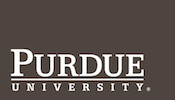Abstract
Currently there is a lack of real-world projects/clients integrated into higher education classrooms. Although there has been a recent uptick in the need to integrate the humanities into the STEM classroom, service learning and/or civic engagement focused projects are limited. This research is to investigate methods for incorporating authentic learning experiences into the post-secondary STEM classroom guided by the follow research question: How can we increase access to authentic learning in the higher education classroom? To answer the question, the pilot study will engage six undergraduate students of varying age, major, and genders in a two-phase approach. First, the students will participate in a group-like virtual internship offered by the U.S. government sponsored Virtual Student Federal Service (VSFS). Traditionally, these types of internships go to individuals rather than teams. The research will focus on team functions as well as project deadlines. The second phase is to use Participatory Action Research (PAR) and Photovoice to evaluate this new approach to VSFS internships. Qualitative data such as photos, narratives, and transcripts will be analyzed using the NVivo software. The team will investigate the data and identify themes related to what went well, what did not go well, what could be improved, and what lessons were learned. New knowledge from this research will be captured by usage of Photovoice and the team’s insights from the experience. If VSFS works well as a team project, it could provide another option for the higher education classroom. Other programs such as service learning student organizations, industry-sponsored capstone projects, and co-ops all have implications that VSFS does not. The results have the potential to transform higher education, producing graduates more prepared to enter the workforce, improving educational institution’s completion and placement rates, and increasing return for parents who help finance their children’s tuition.
Select the category the research project fits.
Innovative Technology/Entrepreneurship/Design
Recommended Citation
Arakawa, Keita, "Integrating Civic Engagement through Virtual Learning in the STEM Classroom" (2019). Purdue Undergraduate Research Conference. 48.
https://docs.lib.purdue.edu/purc/2019/Posters/48
Integrating Civic Engagement through Virtual Learning in the STEM Classroom
Currently there is a lack of real-world projects/clients integrated into higher education classrooms. Although there has been a recent uptick in the need to integrate the humanities into the STEM classroom, service learning and/or civic engagement focused projects are limited. This research is to investigate methods for incorporating authentic learning experiences into the post-secondary STEM classroom guided by the follow research question: How can we increase access to authentic learning in the higher education classroom? To answer the question, the pilot study will engage six undergraduate students of varying age, major, and genders in a two-phase approach. First, the students will participate in a group-like virtual internship offered by the U.S. government sponsored Virtual Student Federal Service (VSFS). Traditionally, these types of internships go to individuals rather than teams. The research will focus on team functions as well as project deadlines. The second phase is to use Participatory Action Research (PAR) and Photovoice to evaluate this new approach to VSFS internships. Qualitative data such as photos, narratives, and transcripts will be analyzed using the NVivo software. The team will investigate the data and identify themes related to what went well, what did not go well, what could be improved, and what lessons were learned. New knowledge from this research will be captured by usage of Photovoice and the team’s insights from the experience. If VSFS works well as a team project, it could provide another option for the higher education classroom. Other programs such as service learning student organizations, industry-sponsored capstone projects, and co-ops all have implications that VSFS does not. The results have the potential to transform higher education, producing graduates more prepared to enter the workforce, improving educational institution’s completion and placement rates, and increasing return for parents who help finance their children’s tuition.

